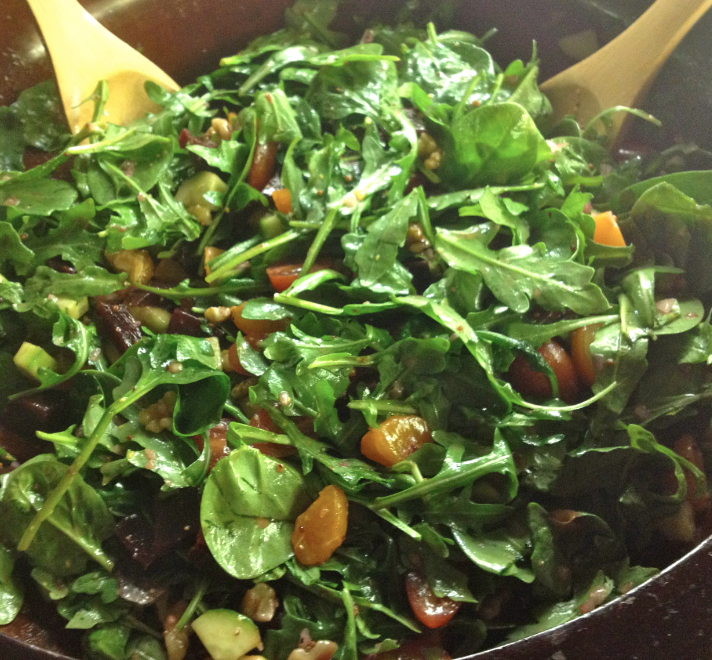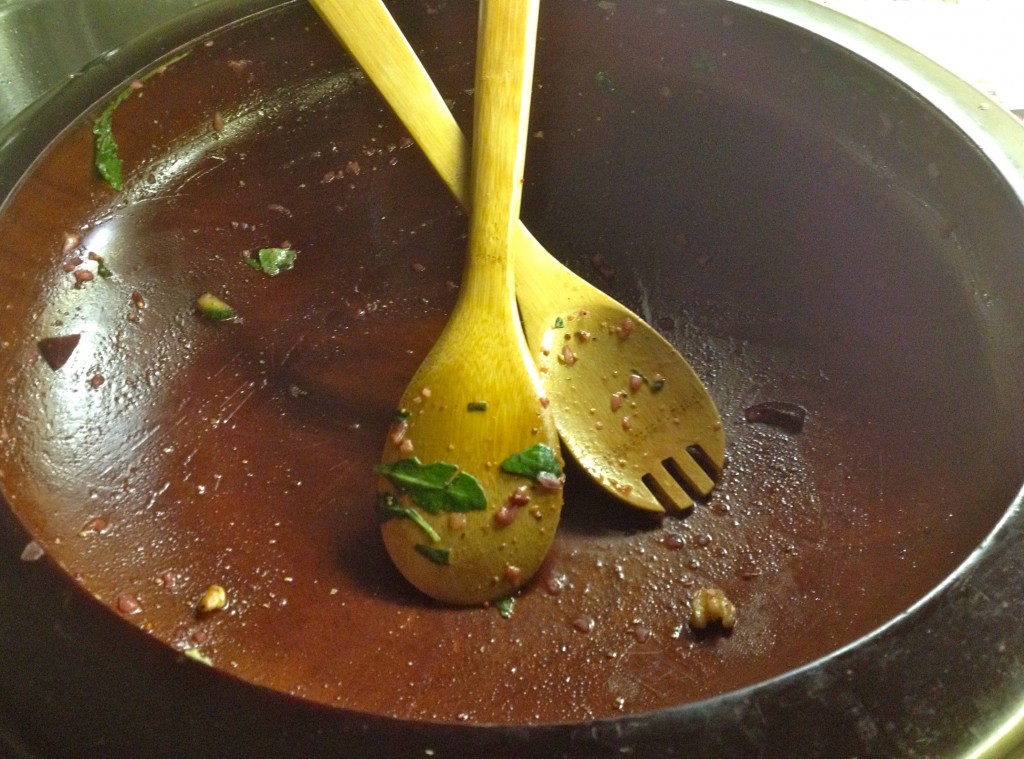If you ask anyone what constitutes Israeli food, they’ll immediately say falafel and hummus. And while Israelis do harbor deep chickpea appreciation, these foods are to Israelis what burgers and fries are to Americans—treats, comfort food…I dare say, junk food.
Real Israeli food, in my opinion, are salads. Salads and salads and more and more salads. A sea of salads greet me at Israeli restaurants and homes. A heaping side of veggies accompany every meal, even breakfast, alongside warm pita, which I use to soak up every last drop of dressing, and to chase skittish bites around my plate.
Before visiting Israel, I thought of salads as “boring health food.” I certainly don’t anymore. In fact, as a wannabe Israeli, I’ve taken it upon myself to incorporate Salad Culture into my life, and become a Master Salad Maker. I must be doing something right, because I am always charged with salads after asking what I can bring to meals or gatherings.
One easy way to bring Israel home is with SALADS. I made this one for Shabbat, using yummy, seasonal winter/spring ingredients.
Beet’ayavon Salad
Salad Ingredients:
- Baby Spinach
- Baby Arugla
- Persian Cucumbers
- Baby Tomatoes
- Purple Onion
- Beets
- Mandarins
- Handfuls of Walnuts
Dressing Ingredients:
- Rice Vinegar
- Pink Himalayan Salt
- Freshly Ground Pepper
- Extra Virgin Olive Oil
- Dijon Mustard (my favorite is Trader Joe’s Whole Grain Dijon)
- 2 Cloves of Garlic
- Honey
To start, combine all of the salad ingredients in a large, fabulous bowl. I eat with my eyes as much as with my mouth, so if a meal looks beautiful, I’m already halfway to delicious.
I use pre-washed, bagged spinach and arugula. Look at this green. No color enhancement here. Happy St. Patrick’s Day to all of us.
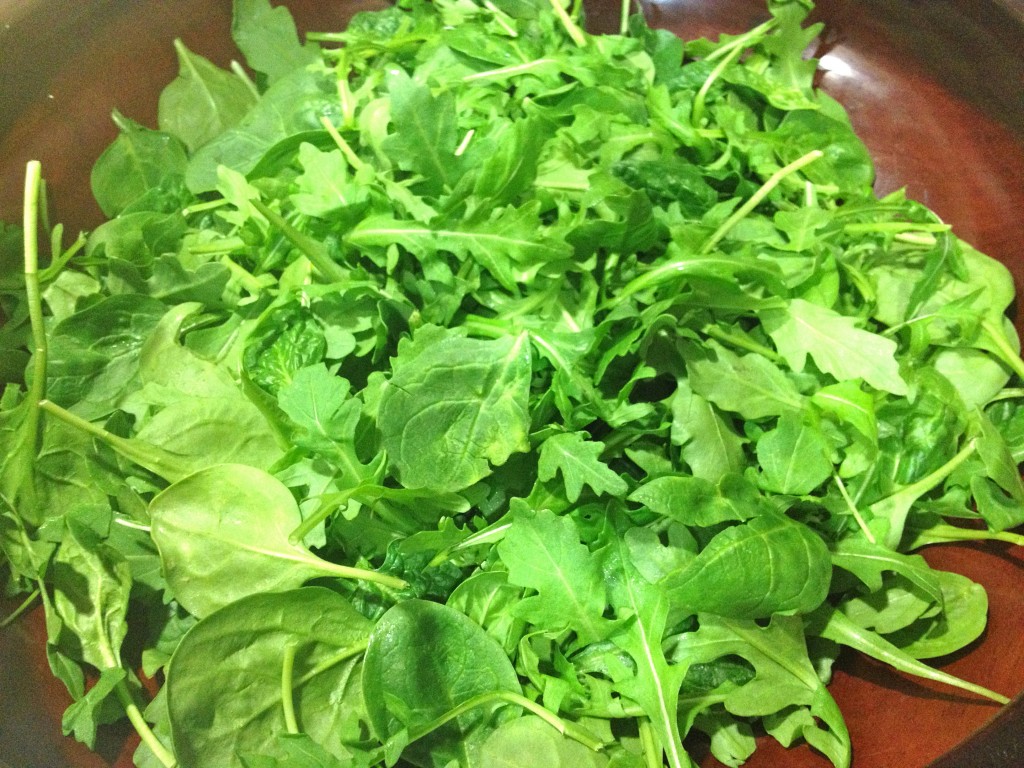
For cucumbers, I like to peel part of the skin off the cucumber. Totally bare, it looses some of its crunch and taste. But full peel-on, it’s a little too dominant for me.
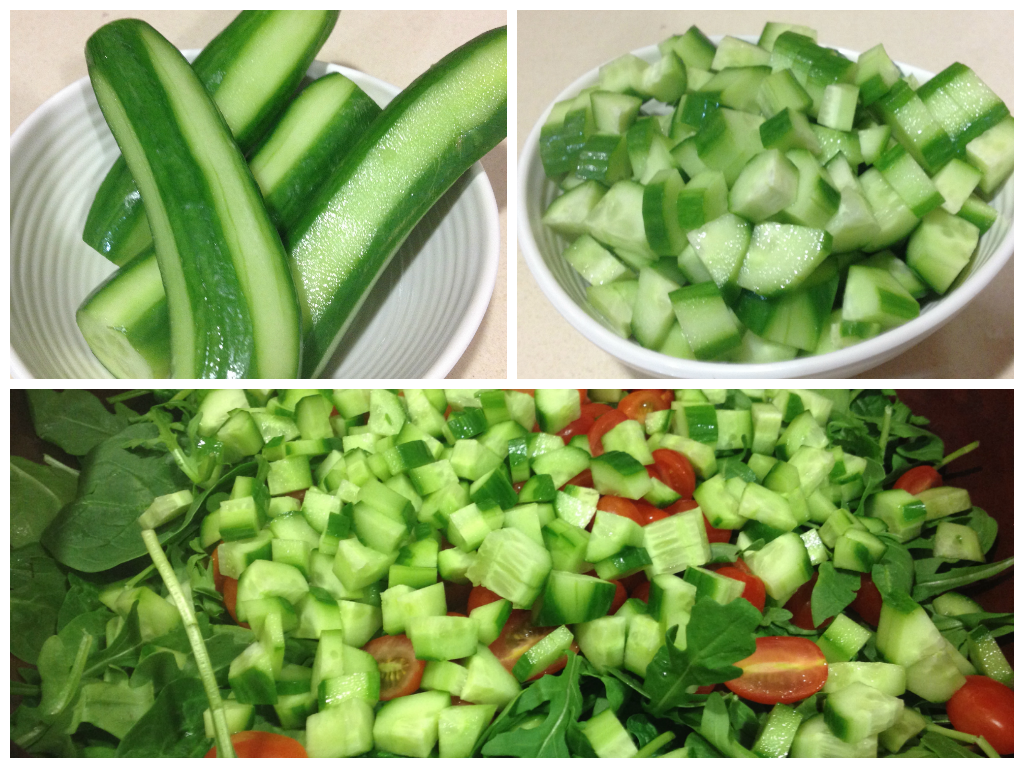
Mandarins are so easy and add so much. Simply peel and cut the individual slices in half. No need to get particular about removing all of the membrane.
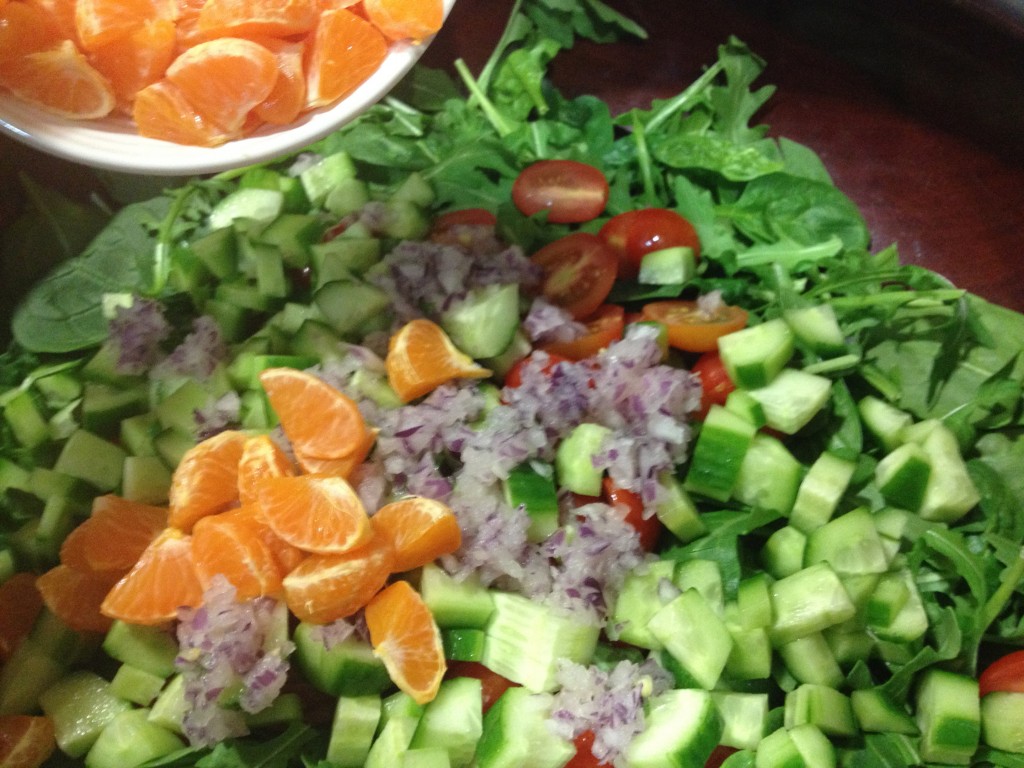
The salad before dressing. Nothing boring about this.
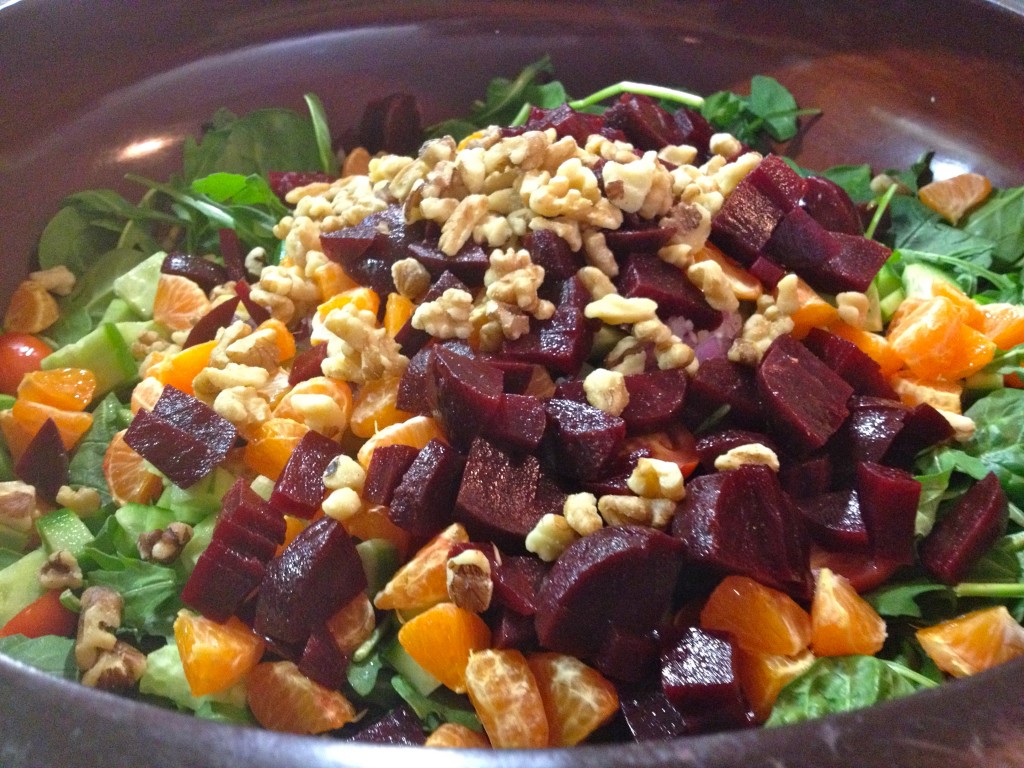 The amount of each salad-dressing ingredient will vary, depending on the size of your salad, so forgive me for not having exact amounts listed. Just use the vinegar as your base and add the rest, letting your eye and taste guide you. What’s also nice about this dressing is that you can find all of the ingredients in a non-kosher grocery store.
The amount of each salad-dressing ingredient will vary, depending on the size of your salad, so forgive me for not having exact amounts listed. Just use the vinegar as your base and add the rest, letting your eye and taste guide you. What’s also nice about this dressing is that you can find all of the ingredients in a non-kosher grocery store.
The finished product looked and smelled wonderful. A dressed salad shines, the glossiness finishing off the vegetables like a lip-gloss completing a look.
Share This PostFollow Me

